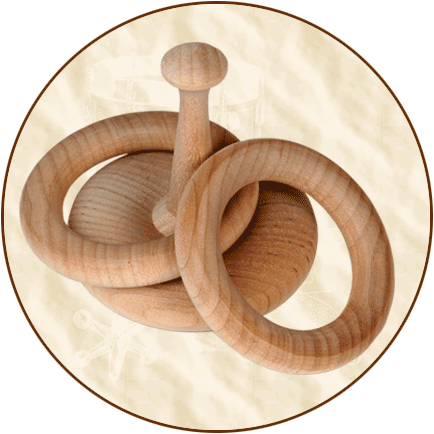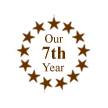.
Continued from product description on
Traditional Games' Page Four...
Historical
Background: The game of quoits may have evolved from ancient
Greece, where athletes enjoyed throwing a discus for competition.
Peter Brown, president of the National Quoits Association, believes
that the Greeks passed quoits to the Romans as a weapon of war.
His theory continues with the thought that the Romans brought
the game to Britain. He even suggests that the origins of the
game go back to the Minoan Empire circa 2000 B.C. because the
boy king of Knossos evidently used quoits as a weapon on slaves
if they tried to escape.
Quoits was made illegal in 1388 by Sporting Regulations, but
by the 15th century, it had become a favorite organized sport
in English pubs and taverns. The first official rules for the
game of quoits were printed in the April, 1881, edition of The
Field in northern England. The National Quoits Association was
formed in 1986.
There are several different games of quoits being played in
England today: The Northern Game, The Long Game, East Anglian
Quoits, and Sward or Lawn Quoits. Sward Quoits is played with
a clay square to which the stake or hob is set in, but it can
become muddy and difficult to maintain. Many people happily adapt
this game and its rules for backyard play with the hob or stake
set in the grass.
Quoits was played during the American Revolutionary War by
both British and Continental soldiers to pass the time. It has
been said that the game of horseshoes was derived from quoits
because some people could not afford to have quoits made, so
they used what was similarly available: old horseshoes!
Miniature versions of indoor quoits were played near the Welsh-English
border for at least a century. It seems that the game was invented
toward the end of the 19th century, but the history of indoor
quoits is not really known. A game called Rings was played in
Northern England. Now, many variations of the game exist. "Deck
quoits" were made from rope and used on cruise ships. "Rope
quoits" is probably the same game and is popular in Australia.
English and Welsh descendants in parts of Pennsylvania play the
game with the hob set at a slight angle on a slate board instead
of a clay bed because they resided in "the slate belt."













